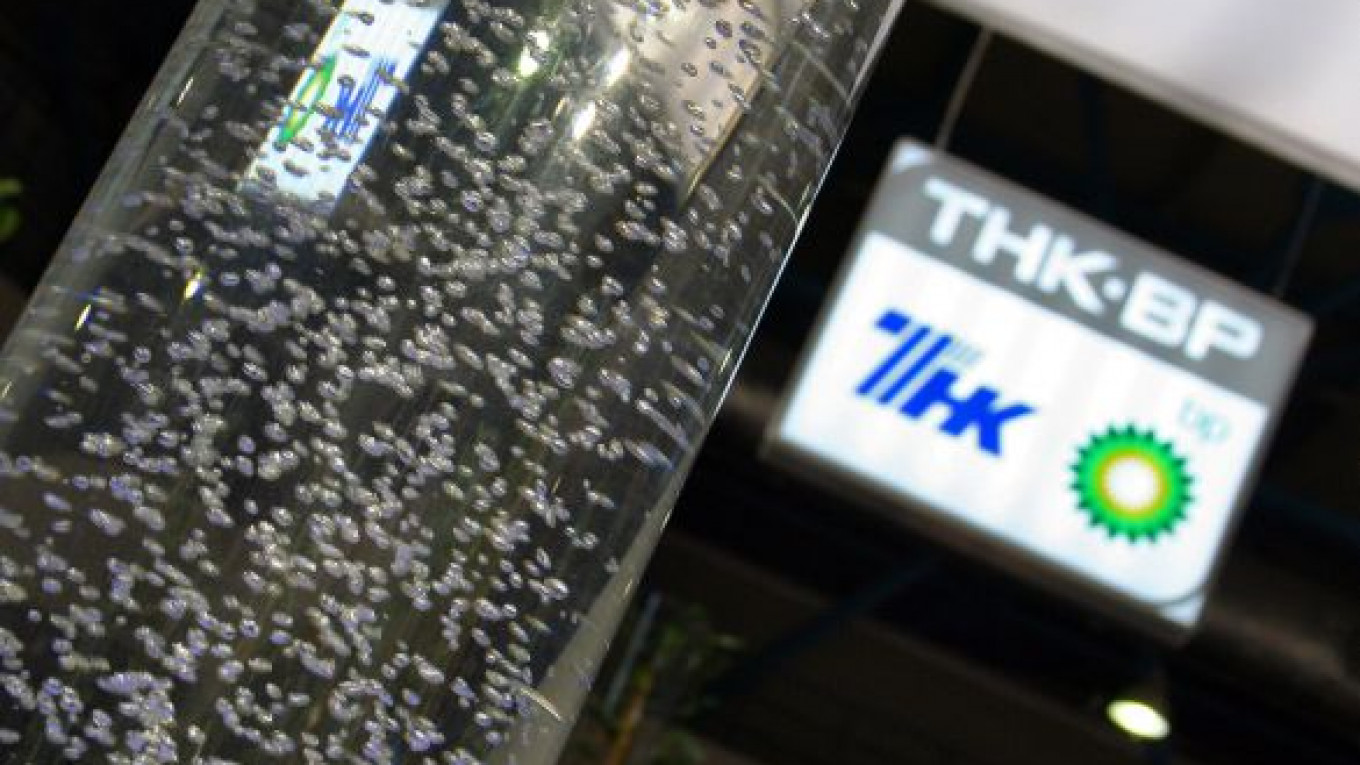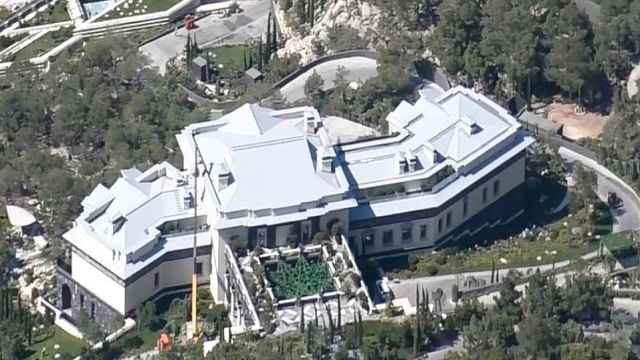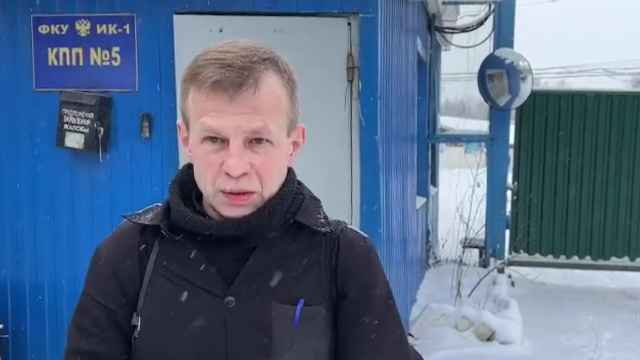TNK-BP saw its net profit to International Financial Reporting Standards drop 17 percent year on year to $2.18 billion in the first quarter, Interfax reported Thursday, citing the company's financial report.
Revenue expanded 16 percent to $16.1 billion in the first quarter thanks to 14 percent growth in the price of Urals oil, as well as an increase in production volumes.
EBITDA was down 9 percent to $3.6 billion. Organic capex totaled $1.1 billion, up 22 percent in the first quarter due to an additional $400 million of investments in field development, mainly at the Verkhnechonskoye and Yamal fields, and $100 million of investments in projects to raise the quality of refined products.
Operating cash flow soared 38 percent to $3.4 billion, mostly as a result of comparative changes in working capital, including a $300 million rise in accounts receivable. TNK-BP saw its net debt almost double year on year to $7.5 billion in the first quarter.
TNK-BP's cumulative daily hydrocarbon production, including the company's stakes in joint ventures, grew 4 percent year on year to 2.04 million barrels of oil equivalent (boe) in the first quarter, the company said.
TNK-BP achieved the growth thanks to development of the Uvat and Verkhnechonskoye projects, as well as its international assets.
In Russia as a whole, cumulative daily hydrocarbon production was up 1.7 percent to 1.99 million boe. Oil condensate production expanded 4.2 percent to 21.28 million tons in the first quarter, and gas production rose 14.3 percent to 4.19 billion cubic meters. New fields saw their share of overall production rise 16 percent in the first quarter, compared with 11 percent in the same period of 2011.
TNK-BP expects to sort out its cooperation with Rosneft on the Russian shelf by the middle of this year, TNK-BP's chief financial officer Jonathan Muir told journalists.
At present, TNK-BP is at the preliminary stage of negotiations, and there are so far no proposal specifics or numbers, he said, adding that it is also not yet clear which licenses could participate in this process.
In the first half of April, Rosneft sent proposals on the joint development of 12 shelf sections to LUKoil, TNK-BP, Surgutneftegaz and Bashneft. Rosneft president Eduard Khudainatov has said the company received confirmation from LUKoil and TNK-BP of their desire to participate in joint shelf projects.
Rosneft has entered into strategic agreements that envisage joint work on the Russian shelf with U.S. company ExxonMobil, Italy's Eni and Norway's Statoil. Rosneft has not yet signed agreements with partners on the Magadan-2, Magadan-3, Yuzhno-Chernomorsky and Yuzhno-Russky sections, as well as sections in the Medynsko-Varandeiskoye area of the Barents Sea.
TNK-BP hopes to form a full board of directors by the middle of the year, Muir said, adding that the current lack of independent directors is having no effect on the company's management.
A Message from The Moscow Times:
Dear readers,
We are facing unprecedented challenges. Russia's Prosecutor General's Office has designated The Moscow Times as an "undesirable" organization, criminalizing our work and putting our staff at risk of prosecution. This follows our earlier unjust labeling as a "foreign agent."
These actions are direct attempts to silence independent journalism in Russia. The authorities claim our work "discredits the decisions of the Russian leadership." We see things differently: we strive to provide accurate, unbiased reporting on Russia.
We, the journalists of The Moscow Times, refuse to be silenced. But to continue our work, we need your help.
Your support, no matter how small, makes a world of difference. If you can, please support us monthly starting from just $2. It's quick to set up, and every contribution makes a significant impact.
By supporting The Moscow Times, you're defending open, independent journalism in the face of repression. Thank you for standing with us.
Remind me later.






